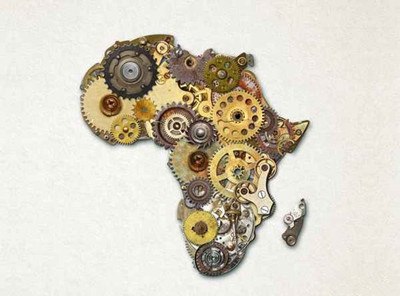Small wonder Africa grew poorer between 1980 and 2000.
難怪在1980至2000年期間,非洲變得更窮了。
Now inflation has largely been tamed, most central banks are islands of excellence and many ministers boast of cutting red tape.
現(xiàn)在,通貨膨脹已經(jīng)得到了極大遏制,大多數(shù)央行表現(xiàn)卓越,很多部長(zhǎng)級(jí)高官都以簡(jiǎn)化政府流程為夸耀的資本。
Five of the ten fastest reformers in the World Bank’s latest report on the ease of doing business are African.
世界銀行最近一次的營(yíng)商便利度報(bào)告中,十個(gè)改進(jìn)速度最快的國(guó)家中有五個(gè)都在非洲。
Better government has led to better results.
更好的政府帶來(lái)了更好的發(fā)展。
The proportion of Africans living in absolute poverty has fallen from 58% to 41% since 2000.
非洲的赤貧人口占比已從2000年的58%下降至41%,
In that time primary-school enrolment has risen from 60% to 80%. Annual malaria deaths have fallen by more than 60%.
同期的小學(xué)入學(xué)率從60%升至80%。每年因瘧疾致死的人數(shù)已經(jīng)下降了超過(guò)60%。
Pessimists fret that much of this progress will reverse now that Africa faces economic headwinds.
持悲觀態(tài)度的投資者擔(dān)心非洲經(jīng)濟(jì)遇到強(qiáng)勁逆風(fēng),大多所取得的進(jìn)步都會(huì)倒退。
There are some worrying signs.
現(xiàn)在也的確有一些令人擔(dān)憂的征兆。
Leaders once hailed as democrats are amending constitutions to escape term limits.
一些曾被尊為民主主義者的領(lǐng)導(dǎo)人們正在試圖修改憲法以突破任期限制。
In Congo, Joseph Kabila’s efforts to cling to power risk restarting a civil war, as the president of neighbouring Burundi already has.
在剛果,約瑟夫?卡比拉(Joseph Kabila)對(duì)權(quán)力撒手不放,有可能會(huì)再次引發(fā)內(nèi)戰(zhàn),鄰國(guó)布隆迪的總統(tǒng)就是前車之鑒。
The continent’s two biggest economies are making needless and costly policy errors.
非洲兩個(gè)最大的經(jīng)濟(jì)體在政策方面正在犯下不必要且成本高昂的錯(cuò)誤。
Nigeria is trying to prop up its overvalued currency by, in effect, banning imports.
尼日利亞實(shí)際上在試圖通過(guò)禁止進(jìn)口來(lái)支撐其估值過(guò)高的貨幣,然而事與愿違,
Instead it is driving up inflation.
這反而推高了國(guó)內(nèi)的通貨膨脹。

South Africa, meanwhile, has prompted capital flight and brought economic growth to a halt by keeping in power a president who was found to have breached the constitution and on whose watch corruption has flourished.
同時(shí),南非因保留了已被發(fā)現(xiàn)違憲且縱容腐敗的總統(tǒng),導(dǎo)致資本外逃,經(jīng)濟(jì)停滯。
But massive missteps like these are now the exception rather than the rule.
然而這種彌天大錯(cuò)僅僅是例外,并不具有普遍性。
Most countries in Africa are following sound economic policies, controlling government deficits and keeping inflation in check.
非洲大部分國(guó)家都在遵循明智的經(jīng)濟(jì)發(fā)展政策,控制政府赤字,遏制通貨膨脹。
Dig beneath the headlines, and even in countries that are making big errors there is momentum for reform:
深挖到新聞?lì)^條背后就會(huì)發(fā)現(xiàn),即使在犯下大錯(cuò)的國(guó)家,仍然有著改革的動(dòng)力:
in South Africa once-taboo policies such as privatisation are back on the table, and in Nigeria the government is clamping down on corruption and trimming a bloated civil service.
在南非,如私有化等政策不再是禁忌,又重新得以討論;在尼日利亞,政府正在打擊腐敗,精簡(jiǎn)龐大的公務(wù)員隊(duì)伍;
Ethiopia is sucking in foreign investment, and smaller economies such as Ivory Coast and Rwanda are growing rapidly after making it easier to do business.
埃塞俄比亞正在吸收外資;而一些小經(jīng)濟(jì)體,如科特迪瓦和盧旺達(dá),在改善營(yíng)商環(huán)境之后增長(zhǎng)迅速。












